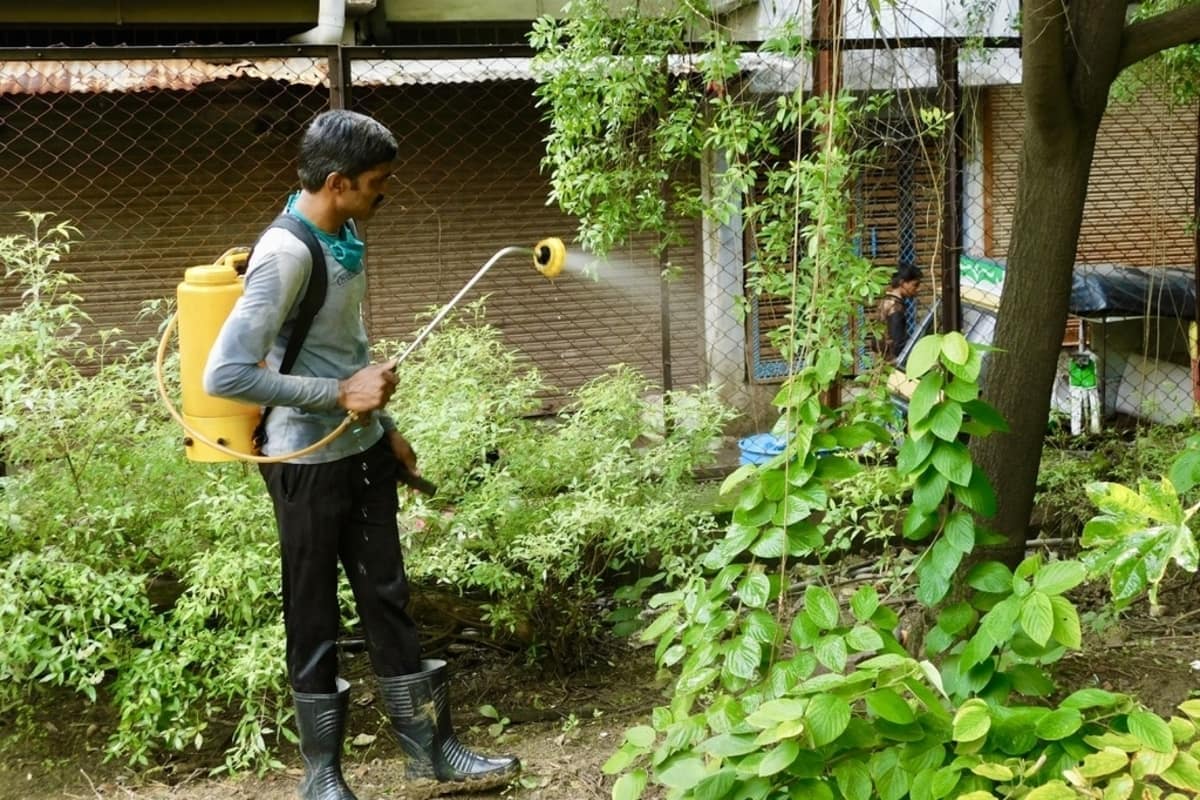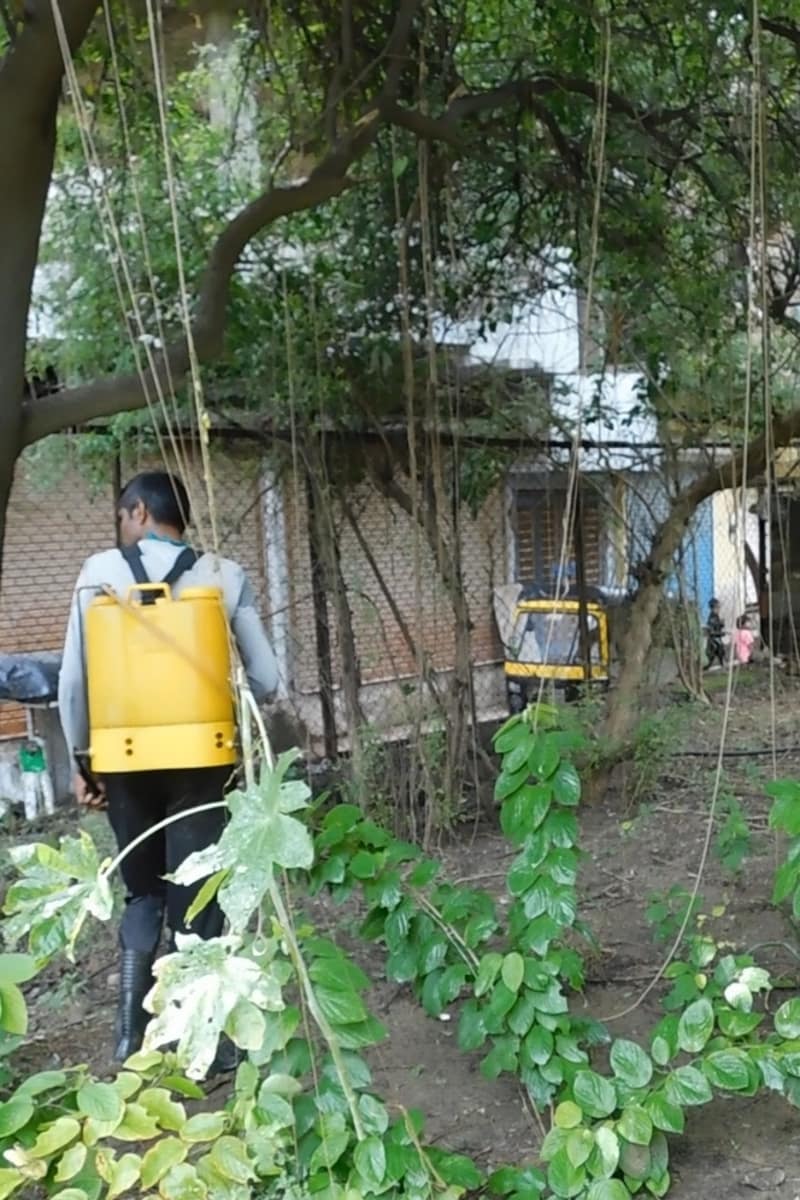‘Vanaj’ is a Hindi word of Sanskrit origin meaning ‘born in the forest’. In Sambhavna’s community gardens, it is the name given to the collections of microorganisms that the gardeners harvest from the forest.
In October 2017, a retired University Professor of Agroecology and Medicinal Plants from Brazil, Dr. Vera Maria Carvalho Silva Santos, travelled to Bhopal to volunteer at Sambhavna in the herbal garden. With a PhD in the cultivation of medicinal plants and a passion for Ayurvedic medicine (before volunteering at Sambhavna she had completed a course in Ayurvedic pharmacology in Tamilnadu), Vera was full of ideas for the herbal garden.
One of her ideas was to harvest soil microorganisms from nearby forests, of which there are plenty. She came up with an ingenious system for cultivating these microorganisms in the forest soil, before transferring them to Sambhavna for use in the gardens. After she left, Manmohan and Makesh, both full-time gardeners at Sambhavna, took over the procedure, receiving advice and support from Vera through WhatsApp. To begin the process, they take rice cooked in non-chlorinated water and bury it a few inches below the soil in the part of the forest where it is soft under the feet. They go back to the spot after 10 to 15 days and take out the rice, which by now has shaped colonies of soil microorganisms of different colours. The gardeners handpick and collect the colonies that are bright colours – red, pink, yellow, white, and violet – leaving those that are brown, black or grey behind.
Back at the clinic, the differently coloured colonies are all put together, fed jaggery (cane sugar) and allowed to multiply in about two litres of water in a glass container. After two to three weeks Manmohan and Mukesh strain the water and remove the microorganisms. The remaining solution is then diluted ten times, until it looks the colour of pale lager, before being sprayed in the gardens to help the growth of the trees, plants and herbs. These solution of microorganisms, with names like sacharomyces, actinomicetes, lactobacillus and pediococcus, are what the Sambhavna gardeners have decided to call ‘vanaj’.
Sprayed on the soil once every two to three weeks, vanaj softens the soil and helps it to retain water for longer. Sambhavna records show an increase in the growth of turmeric by about 60% after spraying Vanaj on the soil. Sprayed on the plants, it acts as a natural pesticide and prevents insects from causing damage. Vanaj also reduces the time needed for preparation of vermi compost (manure made from kitchen waste with help from earthworms), from three months to just six weeks. Vanaj is also used in the toilets and helps to keep the clinic odour free. Professor Vera, although she does not speak Hindi, continues to provide guidance and encouragement to the gardeners, who speak very little English, through Whatsapp. We would like to thank her for her continued support of Sambhavna, Manmohan and Mukesh for all the hard work and care they put into the gardens, and Tabish in Bhopal for sharing this story with us.




